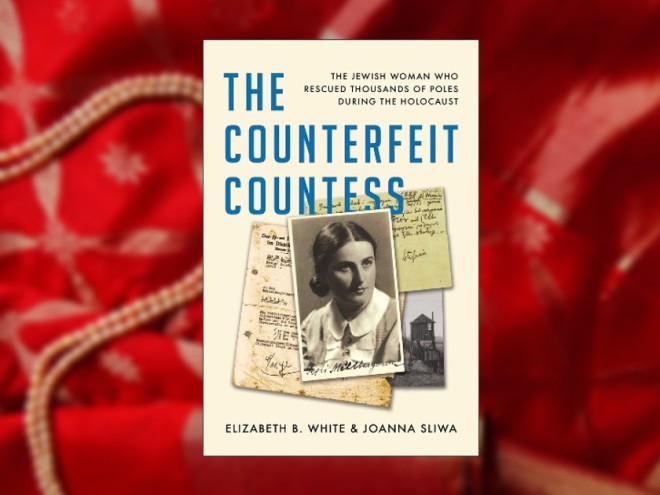The Counterfeit Countess is a biography of Dr. Josephine Janina Mehlberg, a Jewish mathematician who masqueraded as a Polish noblewoman during the Holocaust and saved thousands of Poles imprisoned at Majdanek, a brutal concentration camp.
Mehlberg was born Pepi Spinner in 1905 in the Galician town of Żurawno (now Zhuravno). She went on to study in Lwów with Europe’s leading mathematicians, ultimately obtaining a doctorate in philosophy and working as a mathematician. In 1933, she married Henry Mehlberg. Six years later, after Lwów was taken by the Nazis, the couple escaped to Lublin, where Mehlberg assumed the identity of Countess Janina Stanisława Bednarska Suchodolska.
The book details how Mehlberg took on the role of a Polish welfare official and, through a mix of savvy and sheer will, delivered ever-increasing amounts of food to Majdanek prisoners. She consistently scaled up her operations, using food transports as a cover to smuggle medicine, notes, and other necessities to the camp. She even managed to negotiate the release of over three thousand Catholic Poles who were incarcerated as political prisoners.
Mehlberg’s husband tried to get her memoir published in 1969, to no avail. Barry White, a historian who first received a copy of the memoir in 1989, returned to Mehlberg’s story in 2017. At that point, White also sent the memoir to Joanna Sliwa, an expert on the Holocaust in Poland. Sliwa partnered with White to bring Mehlberg’s story to light. They decided to publish the book not as an annotated memoir, but as a biography, because “on its own, the memoir cannot convey to most of today’s readers a full appreciation of how remarkable Janina’s story is.” Rich in detail, the book draws from the memoir as well as other archival sources. It is both a biography of an individual woman and an account of life in Lublin’s Polish underground.
As the story unfolds, readers learn about the steadfast moral calculations that motivated Mehlberg to take a number of unfathomable risks. After a close call with a German official on the train to Lublin, Mehlberg resigned herself to what seemed like an inevitable death. From there, she sought to make meaning out of whatever time she had left. She devised a simple calculation: many lives are more important than one. This philosophy grounded her during the years she spent making deliveries to Majdanek.
The Counterfeit Countess is a gripping tale of one woman’s grit and courage in the face of unimaginable terror. That it is only available today, more than fifty years after Henry Mehlberg first attempted to get it published, is a reminder of how many Holocaust stories remain untold.
Hallel Yadin is an archivist and writer based in Philadelphia.





